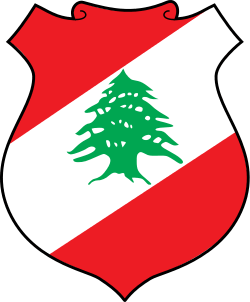Rachid Solh
| Rachid Solh رشيد الصلح | |
|---|---|
| Prime Minister of Lebanon | |
|
In office 31 October 1974 – 15 May 1975 | |
| Preceded by | Takieddine Solh |
| Succeeded by | Nureddine Rifai |
|
In office 13 May 1992 – 31 October 1992 | |
| Preceded by | Omar Karami |
| Succeeded by | Rafic Hariri |
| Personal details | |
| Born | 22 June 1926 |
| Died | 27 June 2014 (aged 88) |
| Religion | Islam |
 |
| This article is part of a series on the politics and government of Lebanon |
|
Rachid Solh (22 June 1926 – 27 June 2014)[1] was a Lebanese politician and former Prime Minister, kin of one of the most eminent Sunni Muslim families in the country that brought several of its members to the office of Prime Ministers, and that was originally from Sidon but later moved its civil-records to Beirut.
Career
Solh was elected to the Lebanese Parliament as an MP for the first time in Beirut in 1960 and was appointed by then President of Lebanon Suleiman Franjieh as prime minister in 1974. Solh resigned from office on 15 May 1975, a few weeks after the outbreak of the Lebanese civil war.[2][3]
Following the resignation of the government of Omar Karami in May 1992, President Elias Hrawi was forced to form a new government and to hold the first parliamentary elections since the end of the civil war. The elections were boycotted en masse by the main Christian political parties who cited election fraud and corruption, and his term as Prime Minister lasted only five months. In 1996, Rachid Solh resigned from the Lebanese government and political life.
References
- ↑ "Liban: décès de l'ancien Premier ministre Rachid al-Solh - L'Orient-Le Jour". Lorientlejour.com. Retrieved 28 June 2014.
- ↑ Lebanese Premier Resigns The Telegraph (16 May 1975)
- ↑ Haytham, Yusif (February 1976). "Lebanon Explodes: "Battles of Survival"". MERIP Reports. 44: 3–14. JSTOR 3011712.
| Political offices | ||
|---|---|---|
| Preceded by Takieddin el-Solh |
Prime Minister of Lebanon 1974-1975 |
Succeeded by Nureddine Rifai |
| Preceded by Omar Karami |
Prime Minister of Lebanon 1992 |
Succeeded by Rafic Hariri |